| s/y Nine of Cups Minuteman National Historic Park - Massachusetts July 2012 |
| Don't forget to check out: National Parks & Monuments? American Odyssey...Part I? (Las Vegas to Denver) American Odyssey...Part II? (Denver to Boston) American Odyssey...Part III? (Boston to Vegas) Birds of North America? Wildflowers of North America? |
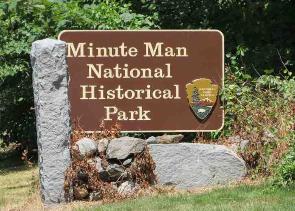
| Not to be confused with the Minuteman Missile NHS in South Dakota, the Minute Man National Historical Park is the unusual battlefield for the start of the American Revolution. Established in 1959, the park protects 970 acres of historical buildings and structures associated with the beginning of the Revolutionary War between the US and Britain. |
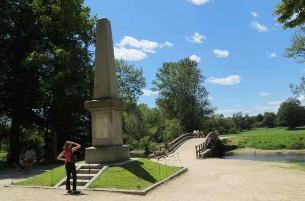
| We went with Marcie's sister, Lin, and nephew, Nick to explore the park, some history and enjoy a picnic on a beautiful summer's day. Above, Lin stands in sight of the North Bridge reading the inscription on the Obelisk. The Obelisk is considered to be the country's first memorial to its war casualties. Concord's North Bridge, where on April 19, 1775, colonial commanders ordered militia men to fire back at British troops for the first time. In his 1837 poem, "Concord Hymn", Ralph Waldo Emerson immortalized this battle as "the shot heard round the world". Right, Lin, Nicks and David pose in front of Daniel Chester French's well-known Minute Man Statue of 1875. |
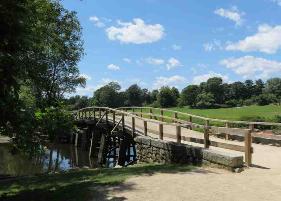
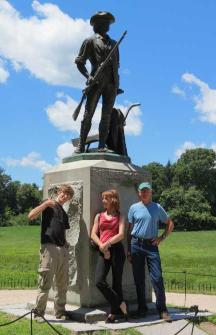
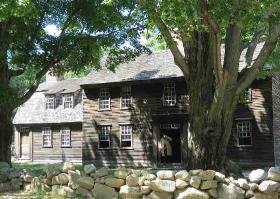
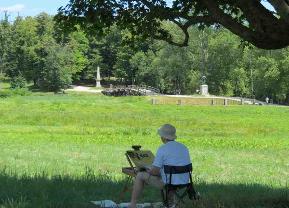
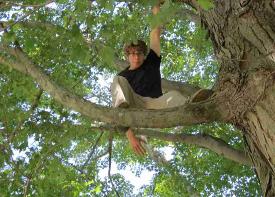
| Who were the Minute Men? Minute Men were different from the militia in the several ways: 1.While service in the militia was required by law, minute men were volunteers. 2.The minute men trained far more frequently than the militia. Two or three times per week was common. Because of this serious commitment of time, they were paid. One shilling per drill was average. Militia only trained once every few months (on average) and were paid only if they were called out beyond their town, or formed part of an expedition. 3.Minute Men were expected to keep their arms and equipment with them at all times, and in the event of an alarm, be ready to march at a minute's warning - hence they were called "minute men." The "guerilla" tactics of the colonials coupled with their intimate knowledge of the local terrain, aided them significantly in their battle against the British. |
| April 19th, "Patriot's Day", is still celebrated as a state holiday each year in Massachusetts. The world famous Boston Marathon is traditionally run on this day. |
| An artist captures the historic scene on canvas |
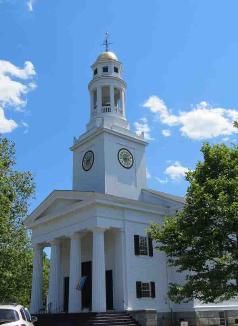
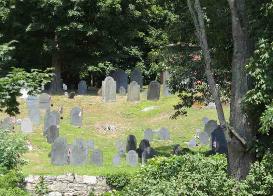
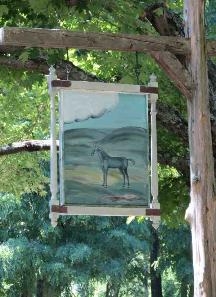
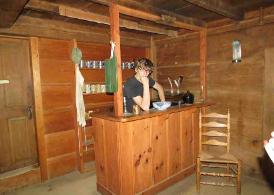
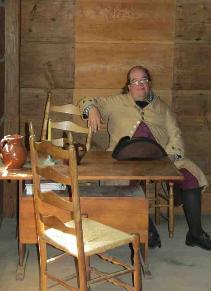
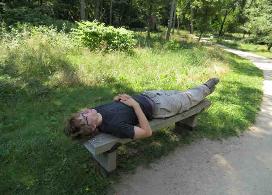
| Nick found the historic trees to be great for climbing and the less historic benches great for catnapping. There are trails throughout the park and an auto route which meanders along the "Battle Road Trail" through the towns of Concord and Lexington following the path and retreat of the British as they sought to maintain order in colonies. |
| An old graveyard in Concord, MA. Right, he First Parish Unitarian Universalist Church in Concord held its first meeting in 1636...just 16 years after the landing at Plymouth by the Pilgrims. |
| The Hartwell Tavern situated along the Battle Road Trail was an interesting stop. An authentic, restored inn, the tavern provided a unique look at a roadside stop for travelers heading to and from Boston in the 18th century. The docent, decked out in tricorn hat and period costume, was very knowledgeable and happy to provide information about the tavern and the times. |
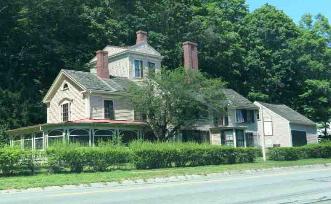
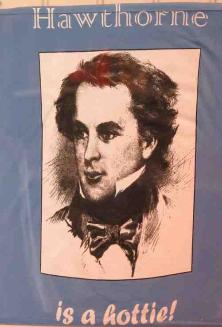
| The Wayside was home in turn to authors Louisa May Alcott, Nathaniel Hawthorne, and Margaret Sidney. |
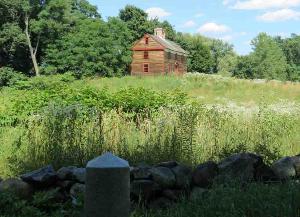
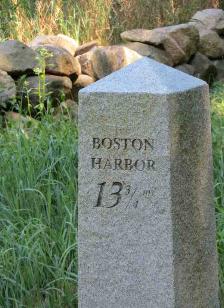
| Further along the trail, the restored home of Captain William Smith, commanding officer of the Lincoln Minute Men. A mile marker reminded us how close we were to Boston. |
| The Visitor's Center provided an excellent orientation film and a good overview of the historical events which occurred here. Above,an illustrated "Midnight Ride of Paul Revere". |
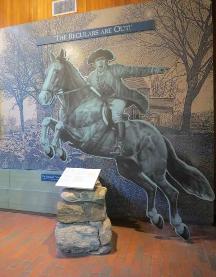
| Massachusetts is a cradle of history and liberty for the USA. There's so much to see and we've only grazed a tiny surface. We walked parts of Boston's Freedom Trail in the past, but it would be great to do it again with "new eyes" (and a digital camera). Next time! We did manage a trip to the Springfield Armory NHS. Interested in taking a look? |